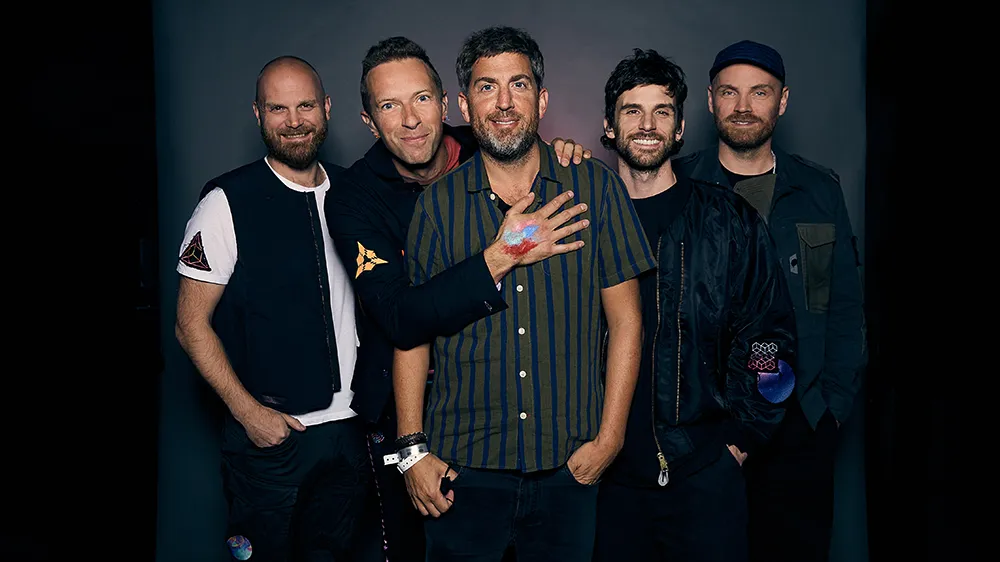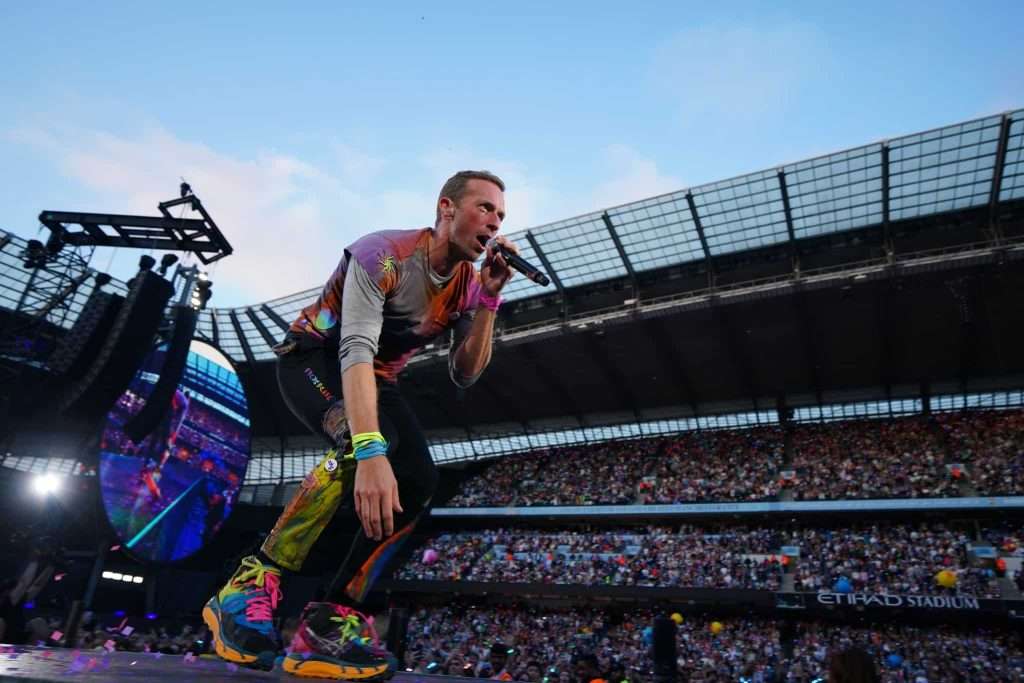Turns out it’s not all “Yellow” for Coldplay. The popular British pop band is seeing mostly green these days as it uses its influence to bring sustainability messaging to the music industry and its fans.
In the late 1990s, four British students from University College London joined together to form a band. Their musical project went through several iterations in a short space of time — starting with the name, Pectoralz, for example, before being renamed Starfish, and then eventually, the name that we’re all now familiar with, Coldplay.
Chris Martin, Jonny Buckland, Guy Berryman, and Will Champion dominated the 2000s and 2010s with hits like “Clocks”, “Yellow”, “Viva La Vida”, “A Sky Full of Stars”, and “Speed of Sound.” Since their university days, the quartet has released nine studio albums, performed eight concert tours, and generated a wealth of around $450 million. But while all of this is, without a doubt, a monumental achievement, the British rock band is likely to go down in history for more than just its music. In recent years, Coldplay has set a new sustainability standard in the music industry and is showing no sign of slowing down.
The detrimental environmental impact of world tours
The live music industry is incredibly taxing on the environment. Tours, in particular, rely on the extensive use of transport (private jets, big rigs, and commercial flights), energy (think light and sound equipment), and food (staff and musicians need to eat). But that’s not all. There’s also the impact from all of the fans.

Take Taylor Swift’s record-breaking Eras World Tour, for example. The popstar didn’t add dates in New Zealand or Western Australia, so airlines laid on thousands of extra seats to take fans in these regions to their closest shows. And when Beyoncé stopped in Cardiff, Wales, on her Renaissance World Tour, reports stated that 60,000 fans came from all over the U.K. to see her perform.
All of this adds up to an astronomical environmental cost. In the U.K. alone, research suggests that music tours contribute around 85,000 tonnes of emissions every year.
So what’s the answer? For Coldplay, it was time to stop, think, and work it out.

After releasing Everyday Life in 2019, the band revealed it would not be touring the album, as the members and their team needed time to work out how their touring habits could be better for the planet. “We’ve done a lot of big tours at this point. How do we turn it around so it’s not so much taking as giving?,” Martin said at the time. It turns out, turning things around was possible.
The band is currently on its Music of the Spheres World Tour, with more European dates set for Europe, the U.K., Asia, and Australia throughout 2024. But this is no ordinary tour — the band has taken every action available to ensure that the shows for their millions of fans around the world do not cost the earth. The Music of the Spheres World Tour is one of the most environmentally-conscious tours the world has seen from a band with the size of Coldplay’s fame.
Coldplay: Setting the sustainability bar high for live music
“The planet is facing a climate crisis,” the members of Coldplay said in a joint statement in 2021. “So we’ve spent the last two years consulting with environmental experts to make this tour as sustainable as possible, and, just as importantly, to harness the tour’s potential to push things forward. We won’t get everything right, but we’re committed to doing everything we can and sharing what we learn.”
In 2023, the band announced that in comparison with its previous world tour, Music of the Spheres had produced 47 percent fewer emissions. The entire show is run from an electric battery system that utilizes renewable energy, flights are powered with Sustainable Aviation Fuel, electric vehicles are sourced where possible, and plant-based, meat-free options are given to crew as standard. And that’s just scratching the surface of the band’s efforts to limit their impact on the planet while they tour the globe.

But making the live music industry sustainable is bigger than just one band. Artists like Billie Eilish, Lorde, and Harry Styles are also concerned about the impact that their tours have on the environment and have partnered with Reverb to help make their shows more sustainable. The organization is dedicated to making live music better for the environment and coordinates with artists to help them employ more sustainable practices — like the use of biodiesel in tour buses and food waste donations — throughout their tours.
To keep the momentum going, Coldplay is also co-funding a new MIT study alongside the Warner Music Group and Live Nation, which will aim to further find solutions to reduce the environmental impact of venues and tours in the U.S. and the U.K.
Speaking on Coldplay’s commitment to better environmental practices, Gareth Redmond-King, the WWF head of climate change, told the BBC in 2019 that it is fantastic to see world-famous artists stepping up to protect the planet. “We all have a responsibility to lead by example in the face of this climate and nature crisis,” he said. “Inaction is not an option if we are to preserve our planet for future generations.”
Related on Ethos:


